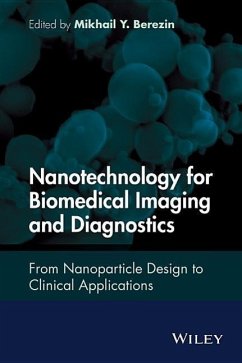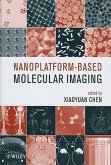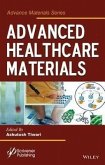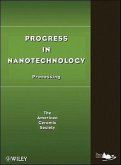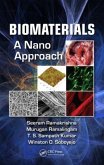A multidisciplinary approach to the architectural design of nanomaterials to their broad imaging applications in medicine Diseases such as cancer, heart disease, and lung inflammation are best treated when detected early. Medical imaging, particularly X-ray, CT, and MRI technology, has transformed the practice of medicine by providing relatively painless and facile ways to thoroughly scan the body for abnormalities. Now the increasing role of nanomaterials in biological and medical imaging is providing the ability and enhancements for current techniques to increase resolution of images. With contributions from experts in academia, industry, and healthcare, Nanotechnology for Biomedical Imaging and Diagnostics: From Nanoparticle Design to Clinical Applications provides comprehensive coverage of the role of nanotechnology in medical imaging, from the design and synthesis of nanoparticles to imaging instrumentation and potential clinical applications. Grouped into three sections, Nanotechnology for Biomedical Imaging and Diagnostics: From Nanoparticle Design to Clinical Applications presents: * Fundamental concepts that establish nanoparticles as contrast agents, explaining in detail their classes and distinguished properties * Established and novel imaging modalities (PET/SPECT/MRI/optical/photoacoustic) and the design of nanoparticles tailored for a specific imaging technique * Medical applications, describing the emerging role of nanotechnology in cancer diagnostics, image guided surgeries, and other critical areas of medicine Written by well-recognized experts in academia, industry, and healthcare, this book is an excellence source of reference that elucidates all major aspects of nanotechnology and bioimaging. It will appeal to students, scientists, and healthcare professionals alike, with its multidisciplinary approach, balance of research and diagnostic topics and description of future directions. Mikhail Y. Berezin, PhD, is Assistant Professor of Radiology at the Washington University School of Medicine in St. Louis. He earned his M. Sc. in Chemical Engineering and his Ph.D. in Chemistry from the Moscow Institute of Oil and Gas and Institute of Organic Chemistry (Academy of Science), after which he conducted research in medicinal chemistry at Pfizer and in optical imaging at Washington University in St. Louis. He is a research member of the Siteman Cancer Center, as well as a member of the American Chemical Society and the Biomedical Optics Society.
Hinweis: Dieser Artikel kann nur an eine deutsche Lieferadresse ausgeliefert werden.
Hinweis: Dieser Artikel kann nur an eine deutsche Lieferadresse ausgeliefert werden.

